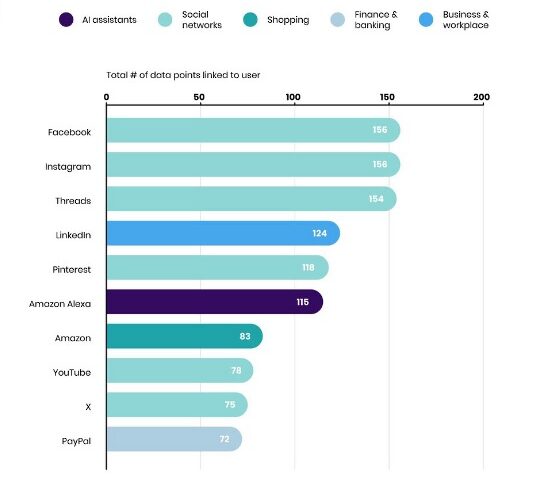How to Block Spam Calls : A Step-by-Step Guide
By: Javid Amin
The relentless onslaught of spam calls has transformed our once-peaceful phones into digital battlegrounds. These intrusive calls, often disguised as legitimate businesses or government agencies, can be incredibly annoying, time-consuming, and even dangerous. But fear not! You’re not powerless against this digital invasion. With the right strategies and tools, you can reclaim control over your phone and enjoy a more serene communication experience.
Understanding the Spam Call Menace
Before diving into the solutions, let’s understand the problem better. Spam calls are unsolicited calls, often automated or prerecorded, made for various purposes, including sales pitches, surveys, and scams. These calls can originate from anywhere in the world, making them difficult to trace and block.
Types of Spam Calls
- Telemarketing calls: These are sales calls from legitimate businesses. While annoying, they are often legal and can be managed through the Do Not Call Registry.
- Robocalls: Automated calls that deliver prerecorded messages. These can range from sales pitches to urgent-sounding scams.
- Spoofing: A technique where scammers disguise their phone number to appear as a legitimate business or government agency. This is a common tactic used in fraudulent activities.
The Impact of Spam Calls
Beyond the sheer annoyance, spam calls can have a significant impact on our lives:
- Privacy concerns: Scammers often collect personal information through spam calls, which can lead to identity theft and financial loss.
- Time wastage: Each spam call consumes valuable time, disrupting your daily routine and productivity.
- Emotional stress: Constant interruptions and the fear of falling victim to scams can cause anxiety and stress.
Effective Strategies to Combat Spam Calls
1. Utilize Built-in Phone Features
- Do Not Disturb (DND): Activate this feature to silence unknown callers or allow only calls from your contact list.
- Call Blocking: Many phones offer built-in call-blocking options. You can manually block specific numbers or enable automatic blocking for unknown callers.
- Call Screening: Some phones allow you to screen incoming calls, letting you decide whether to answer or send the call to voicemail.
2. Leverage Call-Blocking Apps
Call-blocking apps have become powerful tools in the fight against spam calls. These apps use advanced algorithms and community-driven databases to identify and block unwanted calls.
- Popular options: Hiya, Nomorobo, Truecaller, YouMail, and RoboKiller are among the leading call-blocking apps.
- Features: These apps often offer features like call identification, spam labeling, and call recording.
- Community-driven: Many apps rely on user feedback to improve their accuracy in identifying spam calls.
3. Register with the National Do Not Call Registry
While not foolproof, registering your phone number with the National Do Not Call Registry can help reduce legitimate telemarketing calls. However, scammers often disregard this registry.
- How to register: Visit the official Do Not Call Registry website and follow the instructions.
- Limitations: Remember that this registry only applies to legitimate telemarketers and may not stop all unwanted calls.
4. Be Cautious Online
Scammers often obtain phone numbers from online sources. Protect your personal information by:
- Avoiding suspicious websites: Be wary of websites that request your phone number for unnecessary purposes.
- Limiting social media sharing: Avoid sharing your phone number publicly on social media platforms.
- Using strong passwords: Protect your online accounts with strong, unique passwords to prevent unauthorized access.
5. Avoid Engaging with Spam Calls
Never answer or press any buttons on a suspected spam call. Doing so can verify your active number and lead to more spam calls.
- Let it ring: Allow the call to go to voicemail.
- Hang up immediately: If you accidentally answer, disconnect the call as quickly as possible.
- Don’t provide information: Never share personal or financial information with unknown callers.
6. Report Spam Calls
Reporting spam calls is crucial for helping authorities track down scammers and implement protective measures.
- Contact your telecom operator: Inform your service provider about the spam call, including the phone number and details.
- Register a complaint with TRAI: Use the TRAI’s complaint portal to report spam calls.
- Use social media: Share your experience on social media platforms to raise awareness and help others.
Additional Tips for Protection
- Keep your phone software updated: Ensure your phone’s operating system and apps are up-to-date with the latest security patches.
- Be wary of caller ID spoofing: Scammers often disguise their phone numbers to appear legitimate. Be cautious even if the caller ID seems familiar.
- Educate yourself about scams: Stay informed about the latest scams and tactics used by scammers.
- Consider a landline: While not entirely immune to spam calls, landlines are less susceptible than mobile phones.
- Use call-screening services: Some services offer advanced call screening features, including call verification and fraud protection.
Bottom-Line
While spam calls remain a persistent problem, by implementing these strategies, you can significantly reduce their impact on your life. Remember, staying informed and vigilant is key to protecting yourself from these unwanted intrusions. By taking proactive steps, you can reclaim control over your phone and enjoy a more peaceful communication experience.






